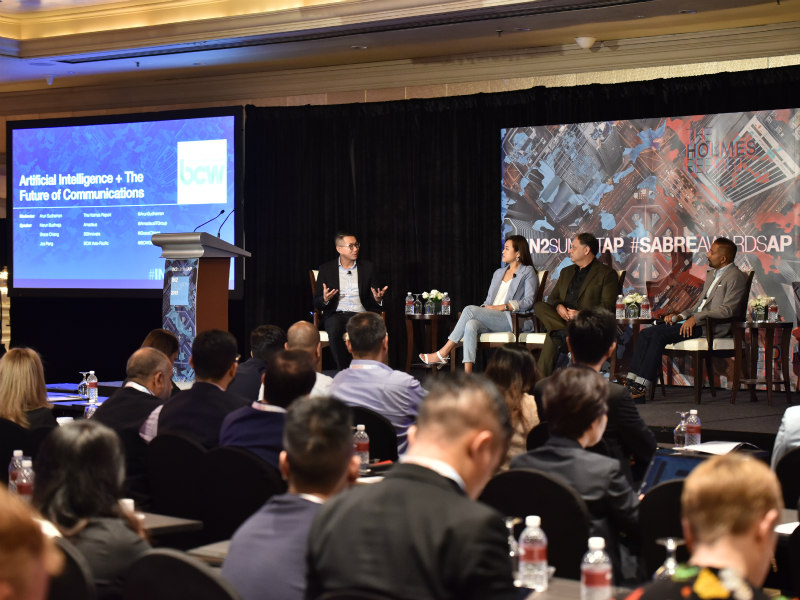Diana Marszalek 16 Sep 2019 // 5:57AM GMT

SINGAPORE — With Asian companies leading in terms of AI adoption, the region has emerged as a critical barometer of the regulatory, ethical and communications challenges the technology poses, heard delegates at last week's Asia-Pacific IN2Summit in Singapore.
In a panel discussion, BCW Asia-Pacific head of digital innovation Joe Peng noted that companies should first and foremost focus on transparency and accountability in their use of AI, especially at a time when business is trying to build public trust in the technology. Understanding algorithms and knowing how personal data is used, for instance, are critical steps in companies successfully using AI, he said.
Peng’s comments reflected a theme that ran through the larger topic addressed by panelists — that embracing AI, for all its benefits, is still risky as there are no rules, nor precedents, for using it in ways that are legal and ethical. And that can refer to a range of areas, including job losses, data bias and cybersecurity.
Indeed, research from MIT Technology Review signals this tension. Overwhelmingly, more survey respondents believe Asia will lead the world in the development of ethics and governance than any other region: 45%, as compared with only a quarter who see North America as the ethics frontrunner. Just under half (42%) of participants say there is “vigorous debate” on ethical issues surrounding AI in their companies, and the majority (55%) think AI should be government-regulated.
“Regulation is always trying to catch up with technology,” said panelist Grace Chiang, communications and digital lead for SGInnovate, a government-backed VC entity that focuses on tech startups. Setting ethical standards is also complex, as “ethics is culturally defined,” she said. “This is something organizations are still grappling with and trying to find a middle ground.”
Regardless, the communications industry is already seeing the benefits of AI, as it doesn’t have to wait to go through layers of approval processes like, for example, the healthcare industry does, she said. Data and analytics, social listening, vetting influencers and connecting content to commerce are just some of the areas where AI is transforming PR, according to panellists.
At the same time, communicators said that for AI to be even more impactful in reaching consumers, there needs to be more focus on making AI-driven messages more personalized and timed better to reach consumers when they are willing to listen. Panelists said they hope to see improved predictive capabilities, so agencies, and other businesses, can develop communications and business strategies based on how likely they are to succeed.
"Technology cannot create strategy. It can only help bring strategy forward," pointed out Karun Budhraja, who leads APAC comms and marketing for travel tech company Amadeus.
"AI can take over repetitive jobs but it does not have emotional intuition that we, as human beings have to completely take over jobs," added Peng. "Every company can create a chatbot but only PR or communicators can create a conversation".
Overall, panelists were bullish about AI's prospects for the industry — bearing in mind that the technology will neither eradicate human interaction nor rob people of their jobs. When it comes to hiring, participants said they still look for talent that has emotional and cognitive abilities, as well as a creative and strategic spark.
“It is all about digitizing the predictable and humanizing the exceptional,” said Budhraja. “If you get technology to digitalize the exceptional, that’s where there is going to be a mismatch.”
Added Chiang: “The core of being a communications practitioner doesn’t change. It’s about sharing a compelling message to the right audience. So the technology surrounding that core helps you do your job better.”


































.jpg)


















